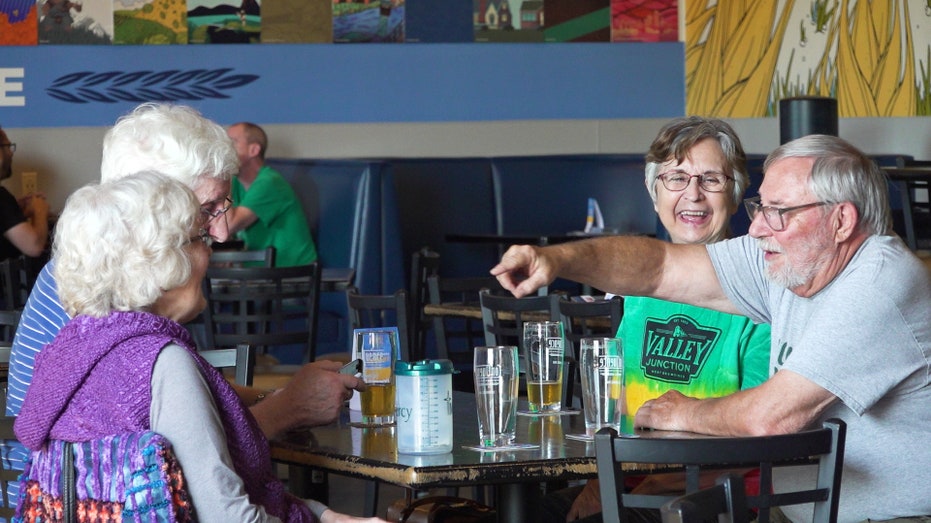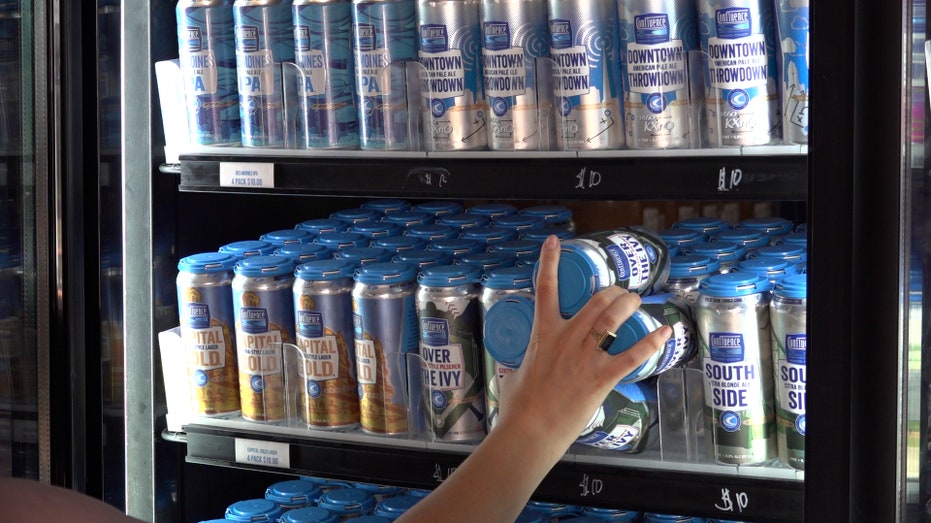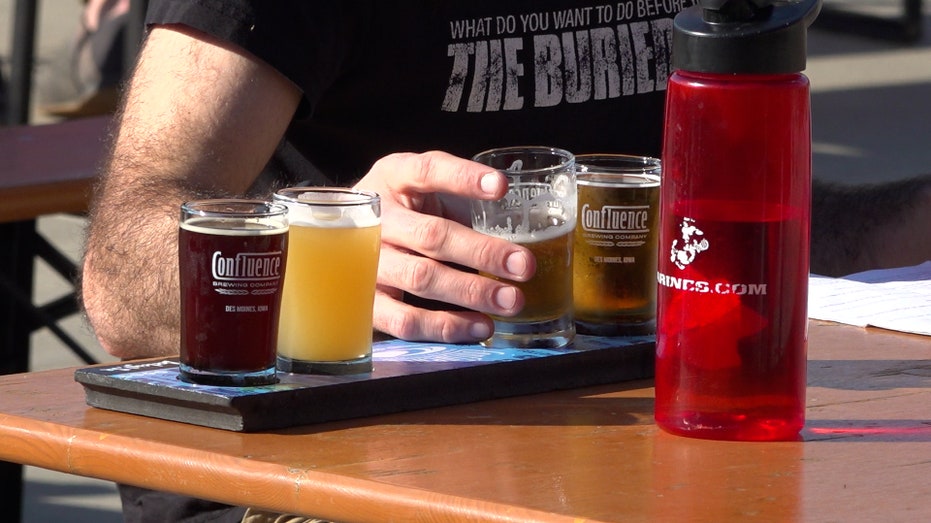Craft brewery industry rebounds near pre-pandemic levels
Breweries struggle with challenges of inflation, passing costs onto customers
Craft brewery industry rebounds near pre-pandemic levels
The brewery industry is rebounding from the pandemic, growing 8% in the last year, according to the Brewer’s Association. But many breweries are still battling staffing shortages, inflation and supply chain challenges.
HOPKINS, Minn. – American Craft Beer Week is coming to an end, which means you have an excuse to visit your favorite brewery.
The brewery industry is rebounding from the pandemic, growing 8% in the last year, according to the Brewer’s Association. But many breweries are still dealing with staffing shortages, inflation and supply chain challenges.
John Martin is the president, co-founder and head brewer at Confluence Brewing Company in Des Moines, Iowa. It's been open since 2012, and Martin said pandemic shutdowns threw the brewery for a loop.
"I’ve always been of the mindset that beer should be affordable. It’s every man’s drink," Martin said.
FINLAND BREWERY LAUNCHES NATO-INSPIRED BEER

Iowans enjoy happy hour at a local brewery Wednesday afternoon. (FOX Business / Fox News)
But the brewery is no stranger to inflation.
"We’re trying not to pass it on to the consumer yet. But, I mean, we're getting close to having to do that. We've experienced increases in grain costs and cans," Martin said.
Confluence sells some of its beer on-site, but about three-quarters of its revenue comes from retailers.
HEINEKEN, CARLSBERG JOIN COMPANIES PULLING OUT OF RUSSIA: ‘NO LONGER SUSTAINABLE’
"We self distribute. Anything that we sell to a retailer at a higher price, they're just going to mark up even more," Martin said. "We don't want to lose sales because of, you know, pricing us out of the market."
Bart Watson is the chief economist for the Brewer’s Association.

In 2020, people were consuming beers at home while 2021 has seen a rise of people coming back out to taprooms. (FOX Business / Fox News)
"What we saw this year was the flip, you know. Those sales rebounded. That was good for small brewers who tend to sell a lot of draft," Watson said. "And so after a 10% drop in production in 2020, we saw an 8% rebound in (2021)."
Last year, 178 breweries closed while 646 new breweries opened across the country.
One of those new breweries is Bear Cave Brewing in Hopkins, Minnesota.
BEER PRICES MAY INCREASE DUE TO UKRAINE INVASION
"It was a two-and-a-half-year project. Getting to this point. Lots of different delays," head brewer Charlie Chapman said.
"It’s a self-pour tap system. So, when you come in the door, you check in with a host, and you get a wristband. Tap the wristband to the screen above your tap and pour your own beer. Charges by the ounce."
But Bear Cave is not immune from growing pains.

"I wouldn't narrow it down to one product because breweries often are looking for things that fit well with their business model. So maybe they're making cider, or maybe they're making a hard kombucha," Watson said. (FOX Business / Fox News)
"Last week. We couldn’t be open for lunch all through the week because we just didn't have the staff," Martin lamented.
And even though the industry is expected to grow even more this year, economists worry about smaller breweries
"Basically, everything that goes into making beer is getting more expensive if you’re buying it on the spot market," Watson said.
He says brands may be concerned that consumers will trade down and buy a brand that's cheaper.
"That's a difficult business challenge that basically every small brewer is facing right now," Watson said.
CLICK HERE TO READ FOX BUSINESS ON THE GO
Large breweries and small breweries face wildly different challenges. Smaller breweries tend to cater to their local communities while some larger breweries are shifting into becoming beverage companies. For example, MillerCoors changed its name to Molson Coors Beverage Company in 2019 to compete with smaller craft beers that were pulling away customers.
The Brewery Association said it is hoping the Restaurant Revitalization Act will pass in the U.S. Senate to help restaurants and breweries rebound from the effects of the COVID-19 pandemic. The bill would have funded over 260,000 bars and restaurants denied funding from previous legislation.





















